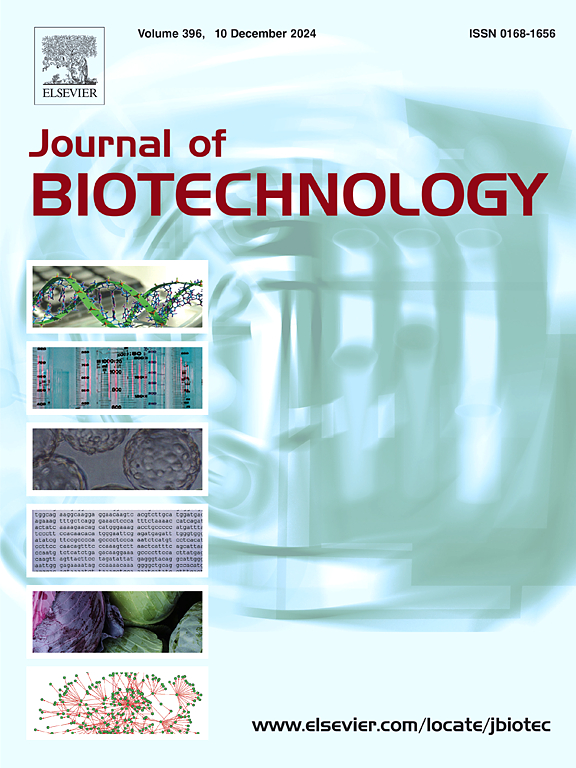Development of a new extraction method and functional analysis of phycocyanobilin from unique filamentous cyanobacteria
IF 4.1
2区 生物学
Q2 BIOTECHNOLOGY & APPLIED MICROBIOLOGY
引用次数: 0
Abstract
As current methods of production of phycocyanobilin, a photosynthetic blue pigment derived from phycocyanin of filamentous cyanobacteria, Pseudanabaena sp. ABRG5–3, Limnothrix sp. SK1–2–1, and Spirulina sp., exhibit a low extraction efficiency, a new extraction method using ethanol extraction as a type of solvolysis with an autoclave (130 ℃, 5.7 bar, 10 min) was developed in this study. This method exhibited high efficiency and enabled easy recovery of the three types of phycocyanobilins. The identity of the three types of phycocyanobilins was confirmed by high-performance liquid chromatography and electrospray ionization-tandem mass spectrometry. Phycocyanobilins were stable at high temperatures (80 ℃) and acidic (pH 3) conditions. Phycocyanobilins also possessed a remarkable antioxidant property. This is the first time that a simple phycocyanobilin extraction method with a recovery rate of more than 60 % and approximately 1 % per dry cell weight of filamentous cyanobacteria has been demonstrated. This novel production method is thus convenient and effective for obtaining high-purity phycocyanobilins.
从独特的丝状蓝藻中提取藻蓝蛋白的新方法和功能分析的开发。
由于目前从丝状蓝藻(Pseudanabaena sp.ABRG5-3、Limnothrix sp.SK1-2-1和Spirulina sp.)的藻蓝蛋白中提取光合蓝色色素--藻蓝绿素的方法提取效率较低,本研究开发了一种新的提取方法,利用乙醇提取作为一种溶解类型,并使用高压锅(130 ℃、5.7bar、10min)进行提取。该方法效率高,易于回收三种藻青素。通过高效液相色谱法和电喷雾离子化-串联质谱法确认了三种藻蓝蛋白的特征。植物花青素在高温(80 ℃)和酸性(pH 3)条件下稳定。植物花青素还具有显著的抗氧化性。这是首次证明一种简单的藻蓝蛋白提取方法,其回收率超过 60%,每丝状蓝藻干细胞重量的藻蓝蛋白含量约为 1%。因此,这种新颖的生产方法对于获得高纯度的藻蓝蛋白既方便又有效。
本文章由计算机程序翻译,如有差异,请以英文原文为准。
求助全文
约1分钟内获得全文
求助全文
来源期刊

Journal of biotechnology
工程技术-生物工程与应用微生物
CiteScore
8.90
自引率
2.40%
发文量
190
审稿时长
45 days
期刊介绍:
The Journal of Biotechnology has an open access mirror journal, the Journal of Biotechnology: X, sharing the same aims and scope, editorial team, submission system and rigorous peer review.
The Journal provides a medium for the rapid publication of both full-length articles and short communications on novel and innovative aspects of biotechnology. The Journal will accept papers ranging from genetic or molecular biological positions to those covering biochemical, chemical or bioprocess engineering aspects as well as computer application of new software concepts, provided that in each case the material is directly relevant to biotechnological systems. Papers presenting information of a multidisciplinary nature that would not be suitable for publication in a journal devoted to a single discipline, are particularly welcome.
 求助内容:
求助内容: 应助结果提醒方式:
应助结果提醒方式:


